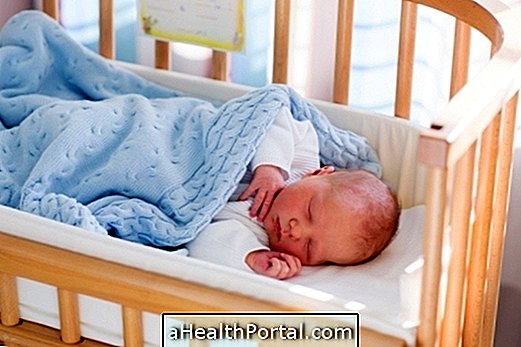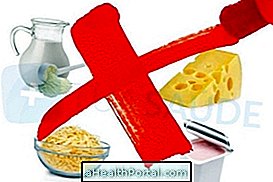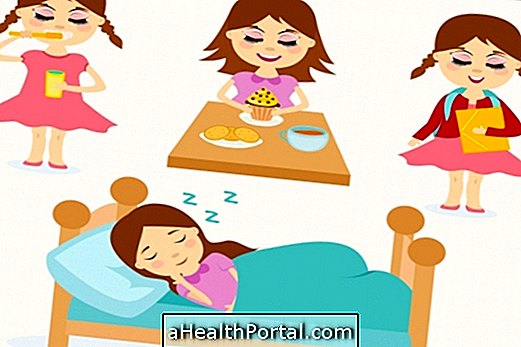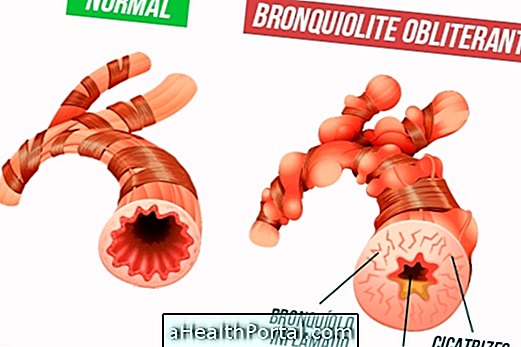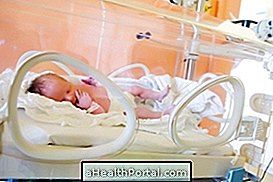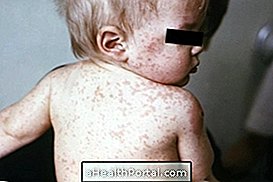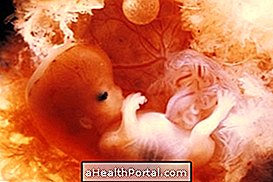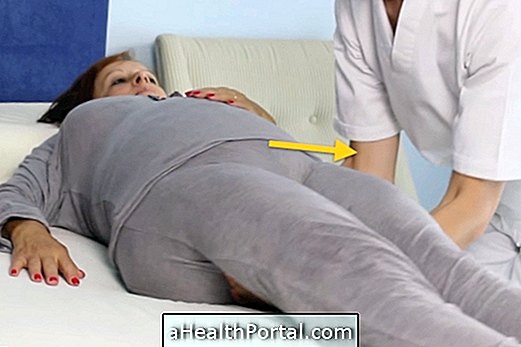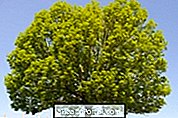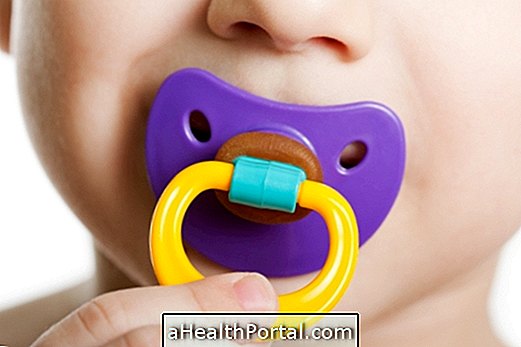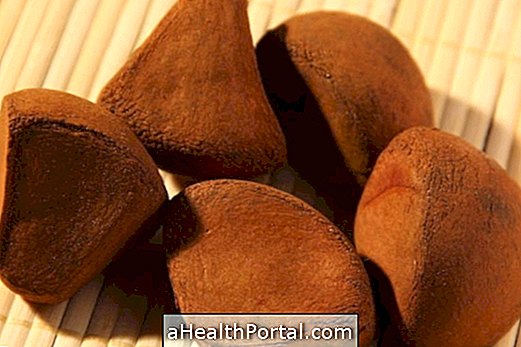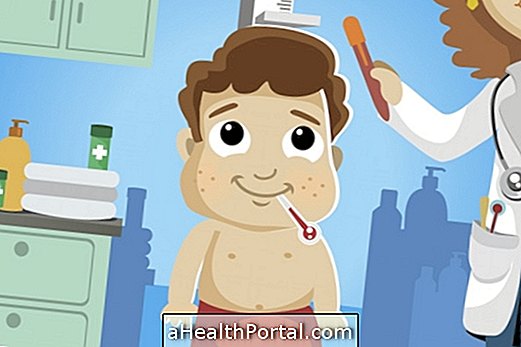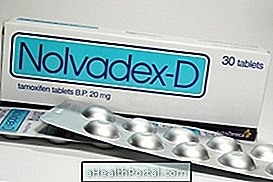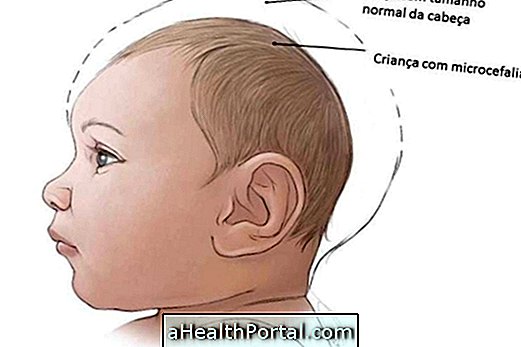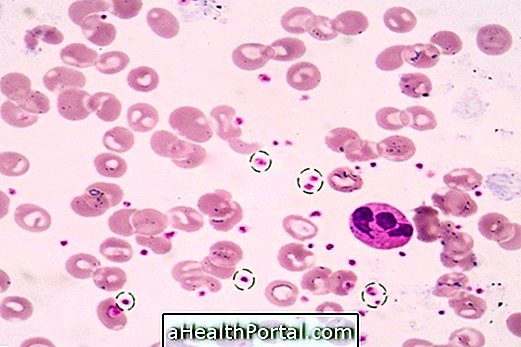To relieve coughing in the baby, one can pick up the baby on his lap to keep his head higher, as this helps the baby to breathe better. When the cough is more controlled, a little water can be offered at room temperature to hydrate the vocal cords and fluidize the secretions, calming the cough. The baby should drink plenty of water during the day, about 100 ml per kg of weight.
Other options to help relieve baby cough may be:
- Doing inhalation with saline, using a nebulizer that is purchased at the pharmacy, this helps to clear the airways being very efficient. If you can not afford a nebulizer you can warm the baby with the bathroom door closed so that the water vapor facilitates the escape of the phlegm, improving breathing. Here's how to unclog the baby's nose;
- Mix a teaspoon of honey with a little water if the baby is older than 1 year;
- Placing 1 drop of cherry essential oil in a bowl of warm water may be helpful in relieving infant cough. Check out 4 ways to use Aromatherapy to combat Cough.
Medications such as anti-allergy syrups, antitussives, decongestants or expectorants should only be used when prescribed by your pediatrician because not all medications can be used on children, and any cough that lasts longer than 5 days should be investigated by your doctor. Usually in infants less than 2 years of age, your pediatrician does not recommend the use of medicines if there is no fever or difficulty breathing.
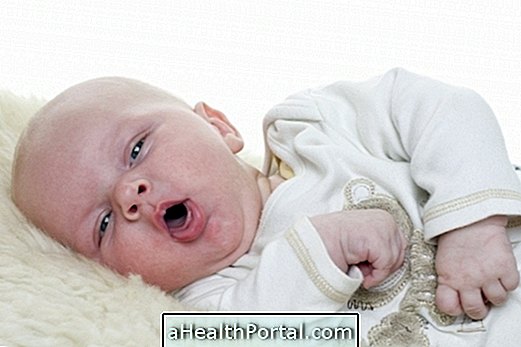
Home Remedies for Coughing in Baby
Homemade remedies can be indicated in case of cough caused by cold, and good choices are carrot syrup and tea from onion skins. To prepare:
- Carrot syrup: grate a carrot and add 1 teaspoon of sugar on top. Then offer the baby the natural juice that comes out of the carrot, which is rich in vitamin C;
- Tea onion peel: In 500 ml of water add the brown peels of 1 large onion and bring to a boil. Strain and offer the baby in small spoons when it is warm.
Another good strategy is to put a few drops of saline in your baby's nose before feeding or feeding and wiping your baby's nose with a baby-tipped swab. There are also, for sale in pharmacies and drugstores, nasal aspirators, which are very efficient to eliminate phlegm, unclogging the nose, which also fights cough. Learn how to fight cough with catarrh.
How To Relieve Baby Cough At Night
A good way to avoid nocturnal coughing is to place a pillow or folded towels under the baby's mattress, as shown in the following image, to slightly raise the head of the crib because the airways become freer and the reflux decreases, reducing coughing of the baby, ensuring a more restful sleep.

Main causes of cough in baby
Baby cough is usually caused by simple respiratory problems such as flu or cold. The main suspect that the cough is caused by respiratory problems is the presence of phlegm, stuffy nose and difficulties in breathing.
Other less common causes of cough in infants are laryngitis, reflux, asthma, bronchiolitis, pneumonia, pertussis or aspiration of an object and so if even after starting treatment with home remedies or according to the pediatrician's advice, the cough remains for more than 5 days or if it is very strong, frequent and troublesome, one should take the baby to the pediatrician so that he can indicate what is happening and what is the best treatment. Here's how to identify the symptoms of pneumonia in infants.
When to take the baby to the pediatrician
Parents should worry and take their baby to the pediatrician whenever the baby is coughing and:
- You are less than 3 months old;
- If you have a cough for more than 5 days;
- If the cough is very strong and prolonged, such as a dog's cough;
- The baby is 38ºC fever;
- The baby's breathing seems faster than normal;
- The baby is having difficulty breathing;
- The baby is making a noise or wheezing when breathing;
- If you have too much phlegm, or phlegm with blood strings;
- Your baby has any heart or lung disease.
In the consultation with the pediatrician, the person in charge should indicate all the symptoms presented by the baby, when they started and everything that was done to try to relieve the cough of the baby.
